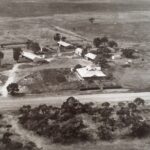Lesson 4 – How to recognize your failure symptoms.
“There are seeds of self-destruction in all of us that will bear only unhappiness if allowed to grow,” Dorothea Brande in her book “Wake up and Live!”
We have all become conversant with such phrases as The Will to Live and the Will to Power, these phrases represent the drives of man toward fulfillment and growth.
It is only the presence of a will to continue living that can account for the tenacity with which a man or a woman in extreme circumstances clings to the mere right to breathe and exist.
The Will to Live in some men and women is very, very strong.
The idea that there exists another Will, a counterbalancing will, the Will to Fail, the Will to Death, is not so readily understood or accepted by Psychologists.
If nature prepares us for each new phase of life by closing off old desires and opening new vistas, it does not seem too difficult to think that we are, always, being slowly, gently reconciled to our eventual relinquishment of all we hold dear as living creatures.
When we are young we first experience and then later turn to realize the process of growth in ourselves. The individual emerges from childhood into adolescence, from adolescence into maturity; and at each of these crises we find that the activities and interests of the old period are being replaced by those of the new, that Nature is preparing the organism for its new role in the world.
This we understand, but the idea of another will, a counterbalancing will, the Will to Fail, the Will to Death, is not so readily accepted.
When this Will to Fail appears in youth or full maturity it is as symptomatic of something wrong – deeply, internally wrong -with one’s life.
Almost always, we are well within its power before we do more than suspect, rarely and vaguely, that all is not as it should be with us.
We are so accustomed to speak of failure, frustration, timidity, as negative things, it is like being invited to fight windmills when we are urged to fight the symptoms of failure.
When the family grows, scatters, and we are left alone, the substitute activity at which we have been so busy is taken remorselessly always from us, and we are sick and terrified at the idea of turning back to take up long abandoned plans.
We can slip through life without discovering all that there was in us to do, without using the most minute fraction of our abilities, either native or acquired. We acquiesce in the Will to Fail. What became of the real life we meant to lead? Instead we have been busy with work that provides us with no more than our bread and butter.
“Do not act as if you had a thousand years to live,” Marcus Aurelius warns.
Whether we dream or dance, we may spend our precious hours as though the store of them were inexhaustible.
If we are not doing what we are best equipped to do, or doing well what we have undertaken as our personal contribution to the world’s work, there will be a core of unhappiness in our lives which will be more and more difficult to ignore as the years pass.
The fritterers and players and the drudging workers are bent mainly on deceiving themselves.
The intention, often unconscious, to fill life so full of secondary activities or substitute activities, that there will be no time in which to perform the best work of which one is capable.
The intention in short is to fail!







